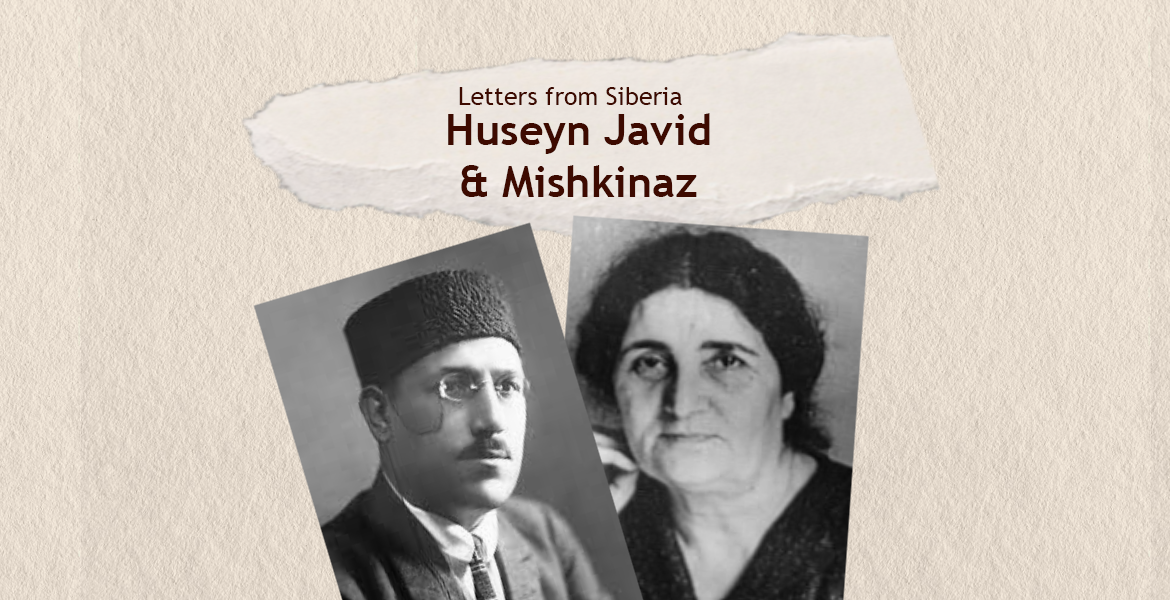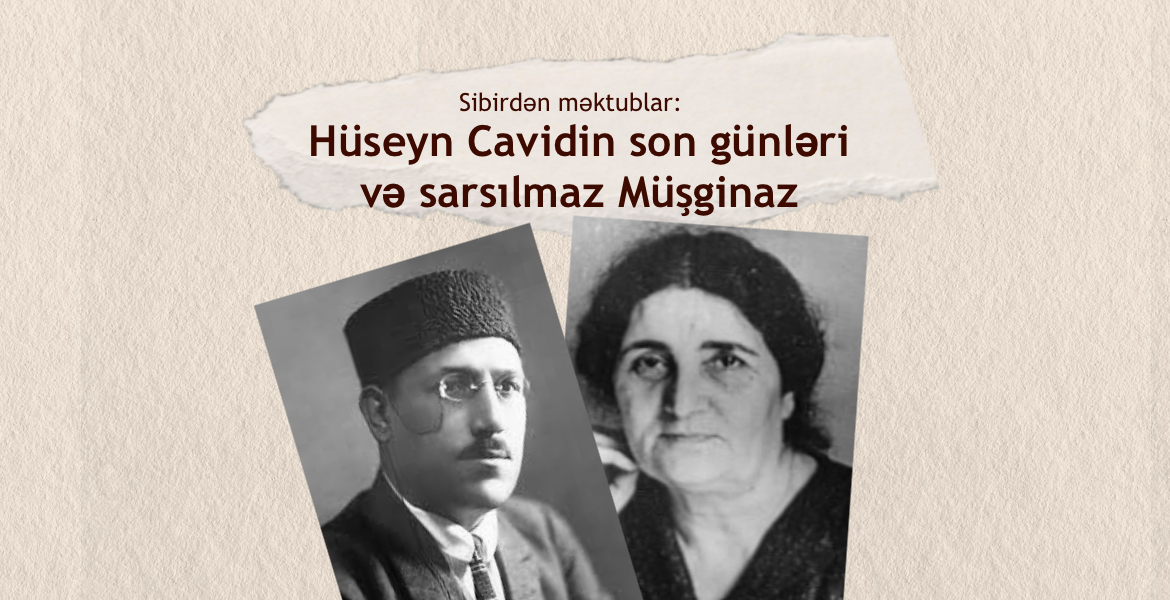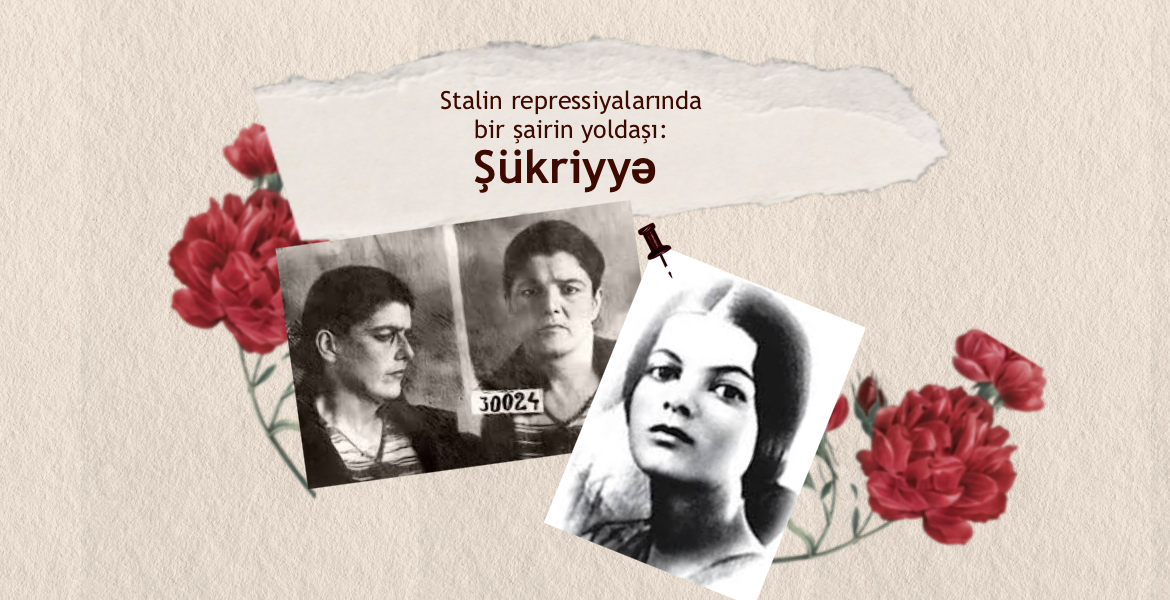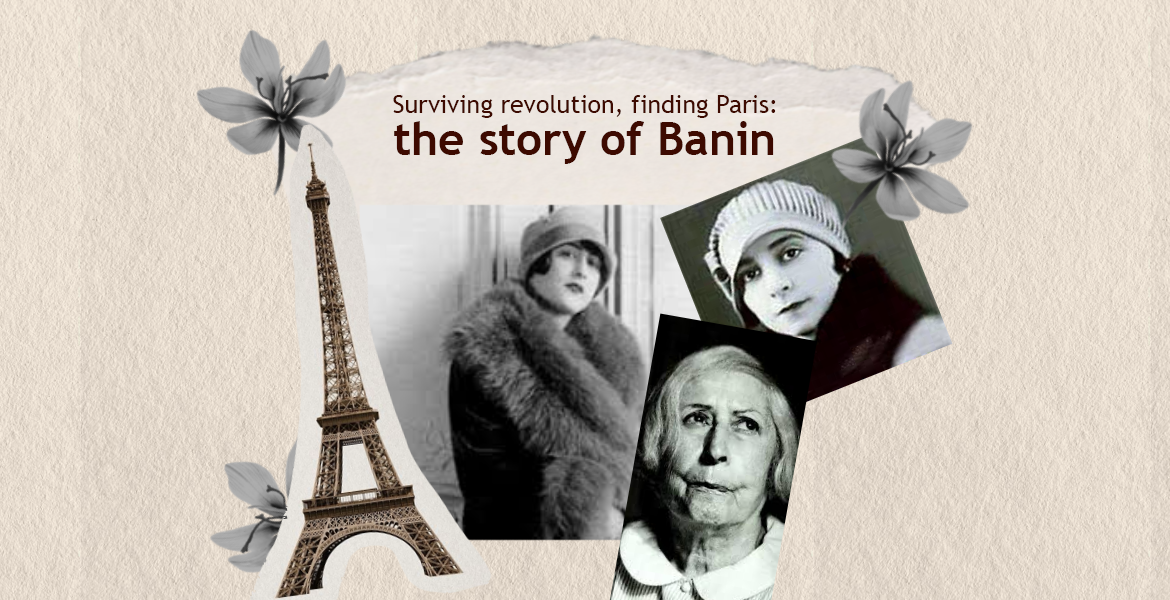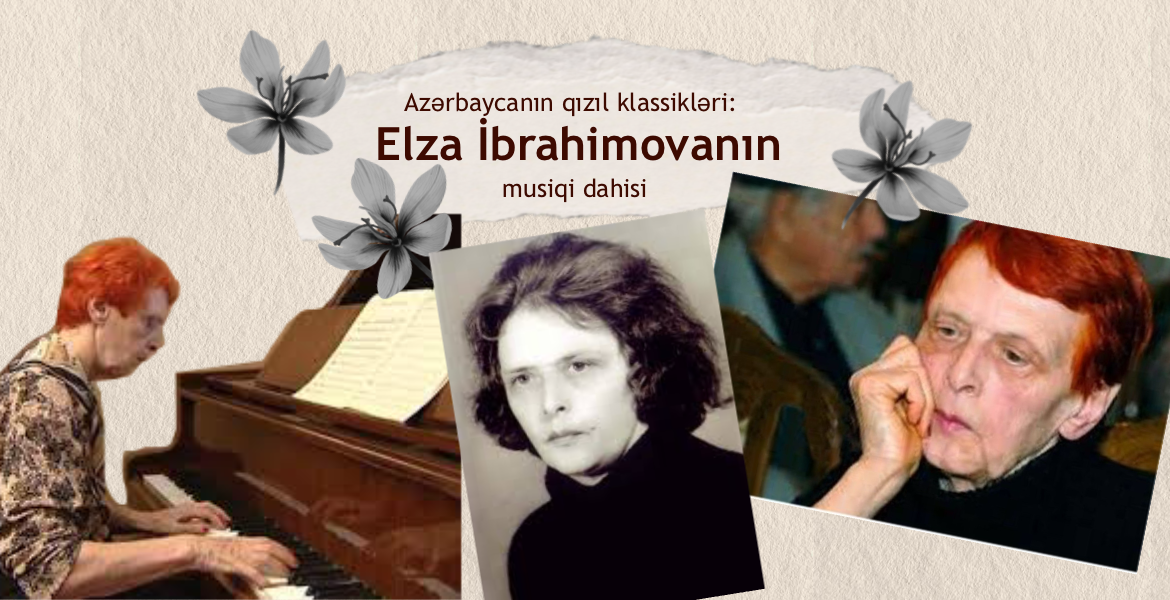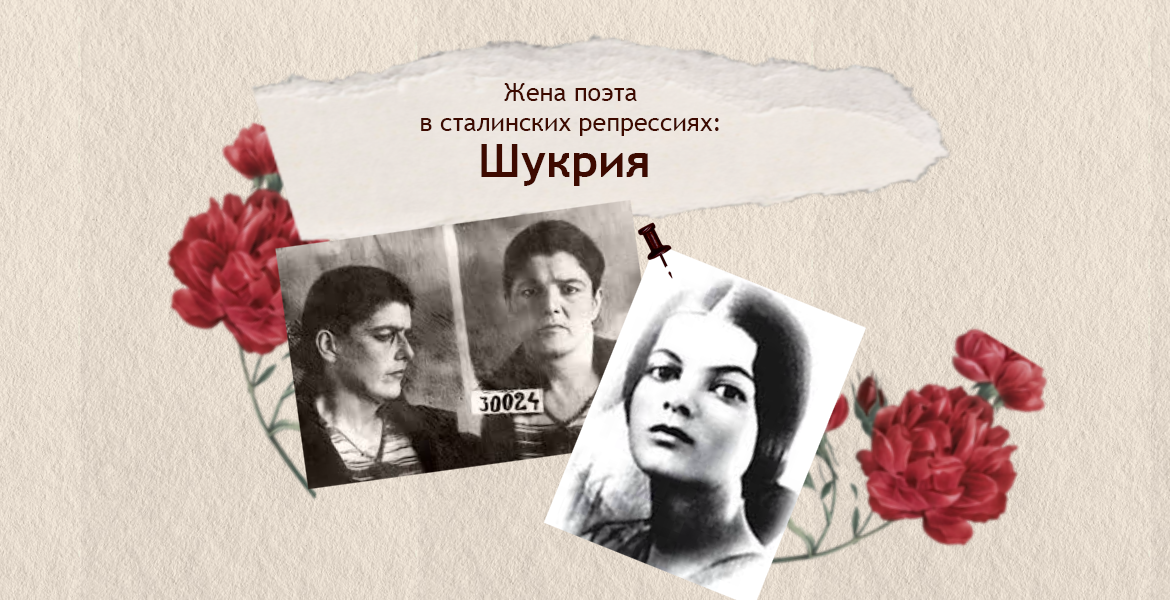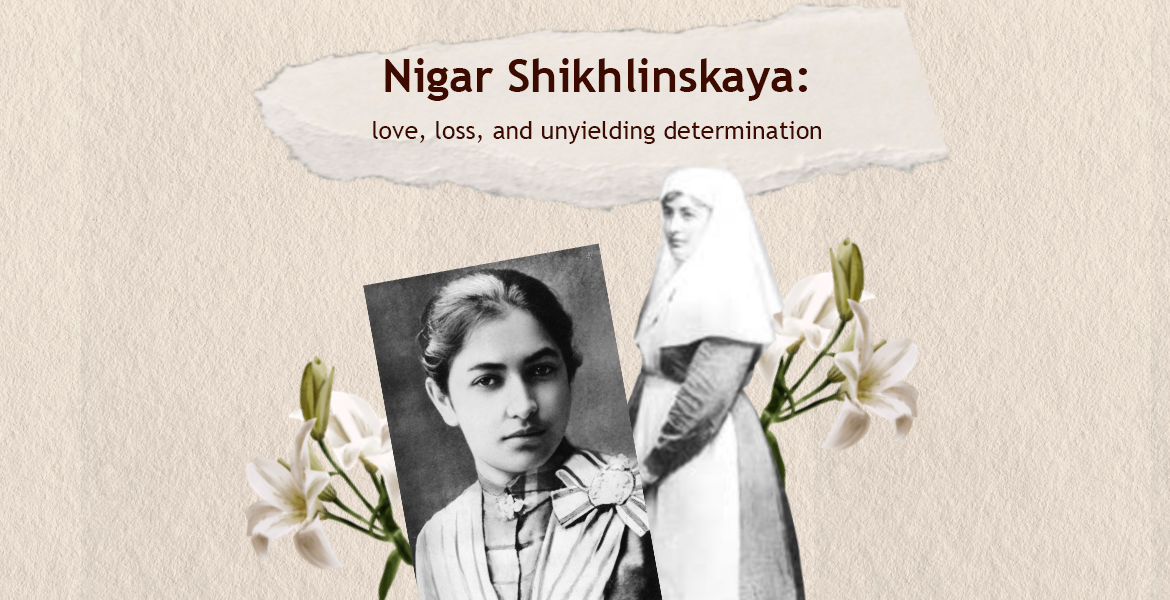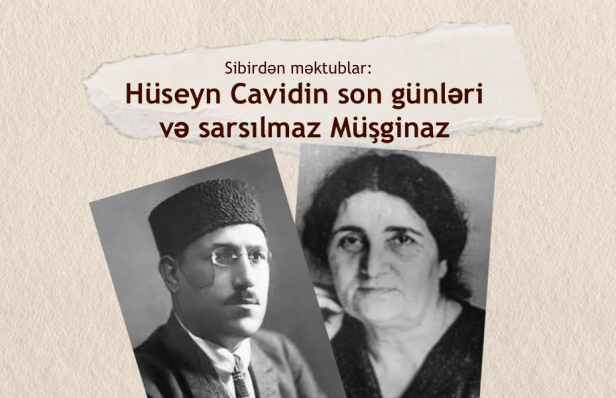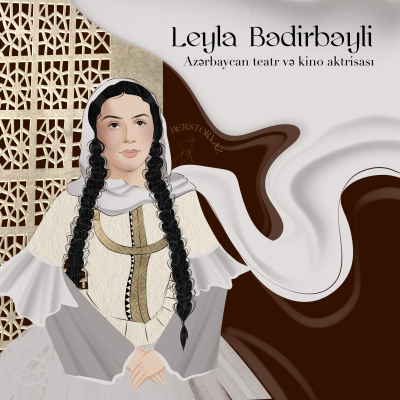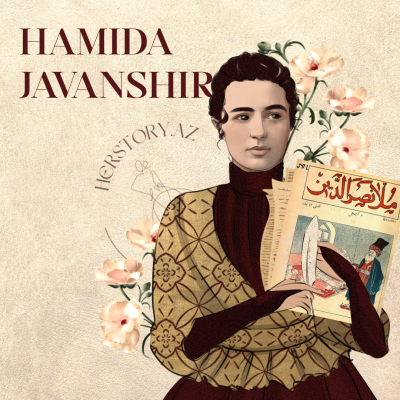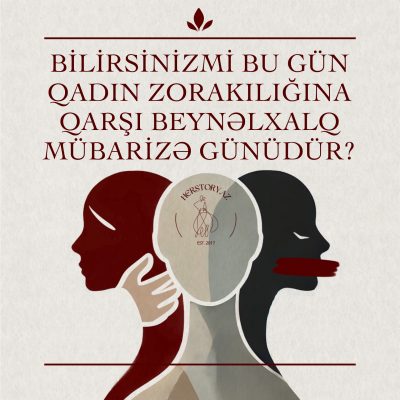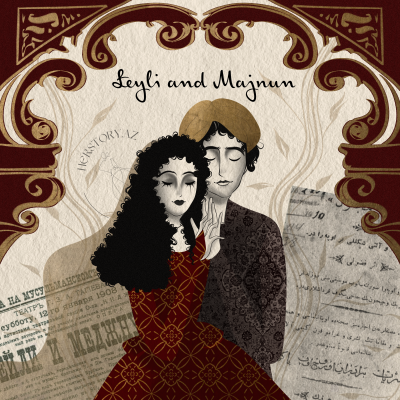Letters from Siberia: Huseyn Javid’s Final Days and Resilient Mishkinaz
Mishkinaz and Javid lived in neighboring houses divided by the Bazarchay River. Javid spent much time by the river, and Mishkinaz often watched him from her window as he walked there in the mornings. Mishkinaz was close friends with Javid’s nieces, Rubaba and Saltanat, who frequently visited one another. Their mother, Javid’s sister Ummi Salima, dreamed of seeing Javid married to Mishkinaz. Each time she hinted at it, Javid would reply, half-jokingly, “Is now the time to marry? I have so much work…”
In 1918, when Javid came to Nakhchivan from Baku, Ummi Salima seized the opportunity, saying, “Brother, let me arrange your marriage.” Javid laughed and replied:
– “Sister, is this a time to get married? I write about free love, and you speak of marriage! Tell me, who is the girl you want me to marry? How do you know I’ll like her? And what if she doesn’t like me?”
– “You agree, and I’ll take care of the rest.”
Finally, Javid agreed to marry—but on one condition.
– “I want to see the girl first!”
In Nakhchivan, it was difficult for a man to meet a woman before marriage, but Ummi Salima found a way. She invited Mishkinaz to her home, where Javid hid behind a chest to see her from a distance. But the light fell behind Mishkinaz, obscuring her face, so they decided to “repeat” the meeting. Finally, Javid saw her and agreed to marry her, making the family very happy.
They married in August 1918 in a modest wedding. A few days after, Javid told his young wife he wished for her to be among his first readers. What could Mishkinaz say? She couldn’t read. Javid began to teach her, starting with the alphabet and moving on to more complex texts, helping her fulfill a lifelong dream.
During those years, Huseyn Javid was teaching in Nakhchivan, but a few months later, he was invited to teach at a school in Baku. Soon after leaving, he wrote to his elder brother, asking him to send Mishkinaz to Baku with a trusted companion. She arrived with Javid’s younger brother Alirza and his family.
In Baku, they rented a small room in a two-story house on Tatarskaya Street. Although the home was bare, this didn’t bother them. In 1919, their son, Ertogrul, was born, followed by a daughter, Turan, in 1923. Javid continued teaching at various institutions, and their financial situation gradually improved. By 1925, girls and boys were studying together in the newly merged seminary, where Javid taught.
Despite challenges, Mishkinaz was happily married. She and Javid shared a harmonious life; he was a kind husband, a caring father, and an attentive partner. He took part in raising the children, was interested in their studies, and encouraged good qualities in them.
The family celebrated Ertogrul’s school successes, and each year when he passed a class, his father bought a big cake and invited guests. Mishkinaz baked sweets, setting a splendid table. She also supported Javid’s work by keeping the household peaceful when he needed to concentrate. She warmly welcomed his guests, serving them Nakhchivan pilaf and aromatic tea. Javid often discussed his characters and ideas with her, selected books for her, sometimes read aloud, and Mishkinaz would even copy drafts of his works.
The family spent summers at their holiday home in Absheron and, from 1928 to 1934, traveled to Borjomi, Yessentuki, and Vladikavkaz.
Life continued peacefully—until June 4, 1937. The day before, Mirjafar Bagirov, the secretary of the Central Committee, criticized Azerbaijani intellectuals, including Huseyn Javid, calling him “an enemy of the people.” That night, a black NKVD car came for Javid, tearing him from his home, his desk, and his family. That day, he had been particularly happy, having signed a contract with a film studio for his Koroglu script, which would have earned him an advance of 5,000 manats. He’d planned to buy diamond earrings for Mishkinaz with this money.
She recounted that terrible night: “Javid woke at 8 p.m. and began working while the children slept. I went to bed around 11. Later, he opened the door and asked for coffee. Seeing I was asleep, he said, ‘I’ll make it myself; go back to sleep.’”
He never had time to drink it. He left that night and never returned. Accused of espionage, Javid was imprisoned, then exiled to Siberia two years later. From that day forward, Mishkinaz khanum never touched coffee again.
The family was soon forced to relocate to Sovietskaya, where they lived in a house without doors or windows, sharing it with other families. Mishkinaz had to find work to support them. She began sewing, eventually joining a cooperative named after Clara Zetkin in 1938, where she worked for nearly ten years. She sold everything she could to feed her family and bring food to Javid in prison.
Once, she gave his old, worn shoes to a cobbler. But when Javid needed shoes in prison, she had no money to buy new ones. She had to retrieve the shoes from the cobbler, saying she needed them for size reference. Such sacrifices were many.
Javid died on December 5, 1941, in a Siberian hospital for the disabled in Shevchenko village, Irkutsk, from a heart attack and sepsis due to frostbite. The family only learned of his death seven years later.
In 1942, Ertogrul, though still a student, was drafted into the army. Labeled the son of an “enemy of the people,” he was sent to a workers’ battalion in Georgia, where the harsh labor affected his health. He was sent to Nakhchivan and died 10-15 days later, without ever seeing his mother or sister.
In 1956, Javid was rehabilitated, the “enemy of the people” label removed, and his works began to be published and staged again. Although many were lost, some miraculously survived. Manuscripts that escaped the NKVD’s notice during their 1937 search were preserved. Mishkinaz’s transcription of The Devil’s Revenge saved it from oblivion.
In 1982, Javid’s grave was found in Siberia, and his body was brought home and reburied in Nakhchivan. After decades of separation, he was reunited with his beloved wife and son—this time, forever.
In his first letter from Siberia in 1939, Javid wrote, “Take care of Turan.” Fate placed upon his daughter the duty of preserving her father’s and brother’s legacy. She cared for every relic, dedicating her life to gathering and protecting them.
This is Javid’s last letter, though his family did not receive it until seven years later:
“Dear Mishkinaz,
I am still at my old place and in good health. I receive the money you send every month. As I mentioned before, please send 50-60 manats by telegram monthly. You don’t need to send packages, but do write about your health every two weeks. Sometimes, hundreds of prisoners are released or have their sentences reduced. Rest assured; my turn will come soon. I send kisses to you, my smart, talented son, and beloved, affectionate Turan. Write to me about yourselves. Kisses again. Javid, May 27, 1941″
